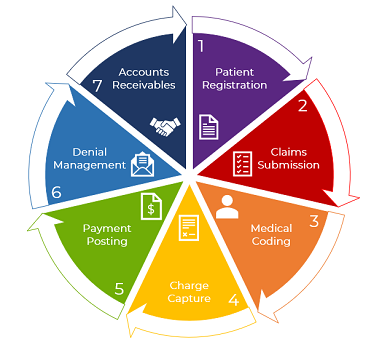As the faces of care, case managers walk patients through the healthcare system. They are responsible for seeing that patients’ health needs are met while also navigating those needs in cost-effective ways. Their services are – without a doubt – crucial to supporting patients as well as physicians and health plans. These experts work diligently to manage the cost of care across the continuum and to provide an invaluable scope of services.
Let’s look at 5 ways case managers bring value to healthcare:
#1) Care coordination
Increasing competition within the provider and payer markets along with the shift towards value-based care means care coordination must be prioritized. Case managers take on the task of coordinating care, a responsibility that “helps decrease costs by ensuring effective navigation through the healthcare system.” The Case Management Society of America (CMSA) notes that services of the profession are “provided by healthcare professionals working with people to identify issues and barriers that may prevent them from getting better and uncovering mutually agreed upon solutions to achieve their healthcare goals.”

While care coordination is a profession of its own, both it and case management work from the concept of a journey:
- care coordinators focus on the patients and their evolving stages of care
- case managers take a more holistic approach and manage the journey “throughout the continuum of services, while ensuring that available resources are being used in a timely and cost-effective manner in order to obtain optimum value for both the client and the reimbursement source”
#2) Claims management
Case managers also take on the responsibility of enhancing claims management. This is part of what differentiates their work from care coordination. To make sure a patient receives the quality of care they need, “case managers also must ensure that any patient’s hospital stay, or any part of that stay, is medically necessary, delivered in the most appropriate setting, and is not custodial in nature.”
The value provided by this responsibility resounds in:
- patient experience
- communication with patients and families
- collaboration that leads to improved outcomes and transitions of care
- optimized support of wellness that benefits the patient, the care team, and the facility
#3) Education
A vital part of the return on investment case managers provide healthcare systems with is education. This education is guided by the pursuit of improved health of patients, care delivery, and organizational performance.

They ensure:
- “education regarding the injury/clinical/disease process has been provided by the health care team”
- the health team understands issues related to costs
- healthcare systems have “creative solutions rooted in…evidence-based guidelines that are continuing to evolve” across the continuum and care settings
- patients, their loved one, and their caregivers understand what resources are available
- issues surrounding healthcare partnerships and reimbursements are understood and have a path to resolutions
#4) Readmission reduction
Across many settings in the healthcare community, case managers continue to become more involved in preventing readmissions. Their work in navigating patients through the system and across the continuum lends itself to increased involvement in this initiative. Key factors in successfully reducing readmissions include:
- using clear communication and a multidisciplinary approach
- making sure patients have appropriate social support
- understanding advance care planning
- being able to identify barriers to post-care follow up
Case managers are skilled in these areas, making them a perfect fit of reduction efforts. This is especially true about post-care visits. Many readmissions occur when patients don’t adhere to post-care plans. Professionals in case management play a crucial role in ensuring patients have access to the resources they need for that care, thus further helping to reduce readmission rates.
#5) Support for the revenue cycle
Professionals who specialize in utilization review are in a “unique position to support the revenue cycle and bridge the gap between a hospital’s finance and clinical departments.” They focus on the revenue cycle to ensure utilization on the front-end and to prevent back-end denials. Healthcare systems are undoubtedly under financial pressures. The responsibilities of experts in utilization review situate them as long-term natural resources in improving the revenue cycle at each stage of the inpatient experience.

These professionals can:
- integrate organizations’ clinical and financial goals
- examine staffing performance and processes
- improve education in case management principles as needed
- maintain interdepartmental relationships
We’re here to help
Team Harmony works with case management and utilization review experts who can:
- manage cost of care across the continuum
- provide optimum quality of care
- manage continuity and transition of care efficiently
- reduce readmission risks
- eliminate avoidable days
- enhance claims management and clean claims
- improve organizational performance
If you’re a case management professional who is looking for a new role, Team Harmony has a career agent ready to make that a reality. Thanks to our varied and dynamic client base, you’ll have the opportunity to work in an environment that best suits your lifestyle.





